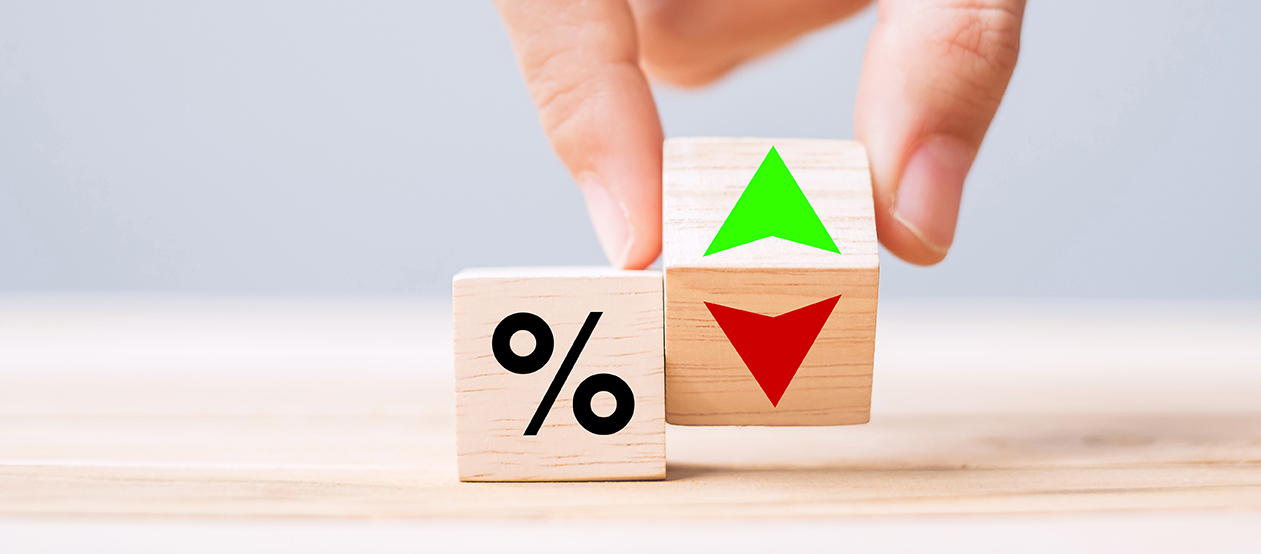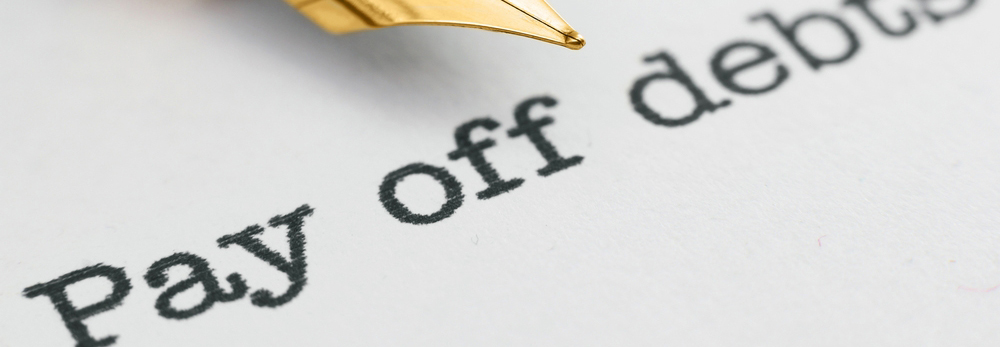
Find Your Perfect Home with a Mortgage Tailored to Your Individual Needs
Whether you’re trying to buy a new home or get a loan based on the equity in your home, shopping for a loan can be daunting, with countless factors affecting the rate you’re offered. Credit score, loan amount, and and so many other factors play into the specifics of your conversation with your lender. If you’re ready to connect with lenders to find out more, you can always try our easy-to-complete form to connect with lenders and start understanding the loan that’s right for you.



The Big Question: Where Are Rates Headed?
In the last couple years, the Federal Reserve has increased the Effective Federal Funds Rate (EFFR) as a way to curb inflation in the United States. This is the rate at which banks can borrow money, which then turn around and lend money to individuals, businesses, and even other types of lenders.
Mortgage rates have jumped because of this. While this has helped bring prices down in some metro markets across the country, it has also made mortgages more expensive.
Predicting where rates are going is impossible, but targeting lower rates to spur economic growth is certainly something the Fed will have its eyes on in the future. We monitor closely, as do our partners in the space, and the right matched lender can help you know when is the right time to buy.
Understanding Your Mortgage Payment
The principal and interest make up the majority of your mortgage payment. The main is the amount you borrowed, and the interest is the amount you pay the lender for the privilege of borrowing it. Your lender may also collect a monthly escrow payment to put into escrow, which the lender (or servicer) normally pays directly to the local property tax collector and your insurance company.
Typical costs included in a mortgage payment
Principal
This is the amount of money you borrowed from the bank.
Interest
This is the fee that the lender charges you in exchange for lending you the money. Interest rates are stated as a percentage of a year’s income.
Taxes on real estate
Your property is subject to a yearly tax imposed by the local government. With each monthly mortgage payment, you pay around one-twelfth of your annual tax bill if you have an escrow account.
Insurance for homeowners
Fire, storms, theft, a tree falling on your house, and other dangers can all be covered under your insurance policy. If you live in a flood zone, you’ll need a separate coverage, and if you live in Hurricane Alley or earthquake country, you might need a third. You pay one-twelfth of your annual insurance premium each month, just like property taxes, and your lender or servicer pays the premium when it’s due.
Mortgage insurance
If your down payment is less than 20% of the purchase price, you’ll likely be required to pay mortgage insurance, which will be added to your monthly payment.


Deciding How Much House You Can Afford
Follow the tried-and-true 28/36 percent ratio if you’re not sure how much of your salary should go toward housing. Most financial counselors agree that people should spend no more than 28% of their gross income on housing (i.e., your mortgage payment) and no more than 36% on overall debt, which includes mortgage payments, credit cards, school loans, medical bills, and other debt. Here’s an example:
“Joe” is paid $60,000 per year. This equates to a gross monthly income of $5,000. Total monthly mortgage payment: $5,000 x 0.28 = $1,400 (PITI)
Joe’s total monthly mortgage payments should not exceed $1,400 per month, including principal, interest, taxes, and insurance. This equates to a maximum borrowing amount of $253,379 dollars. Although you can qualify for a mortgage with a debt-to-income (DTI) ratio of up to 50% for some loans, if you strain yourself too thin, you may not have enough wiggle room in your budget for other living expenses, retirement, emergency savings, and discretionary expenditures.
When lenders pre-approve you for a loan, they don’t take those budget items into consideration. You’ll have to factor them into your own housing affordability picture. Knowing what you can afford can assist you in making wise financial decisions. Even if a lender is ready to lend you the money, the last thing you want to do is commit to a 30-year home loan that is too pricey for your budget.
How to Lower Your Monthly Mortgage Payment
If the monthly payment shown in our calculator appears to be too high, you can attempt several strategies to lower it. Experiment with a few of these options:
Choose a loan with a longer term
Your payment will be lower if you borrow for a longer period of time (but you will pay more interest over the life of the loan).
Spend less money on your property
A reduced monthly mortgage payment is the result of borrowing less.
PMI should be avoided at all costs
A 20% down payment (or, in the case of a refinance, equity of 20% or more) eliminates the need for private mortgage insurance (PMI).
Look for a loan with a lower interest rate
Some ultra-low rates demand you to pay points, which is a one-time fee.
Increase your down payment
This technique is used to cut the loan’s size.



